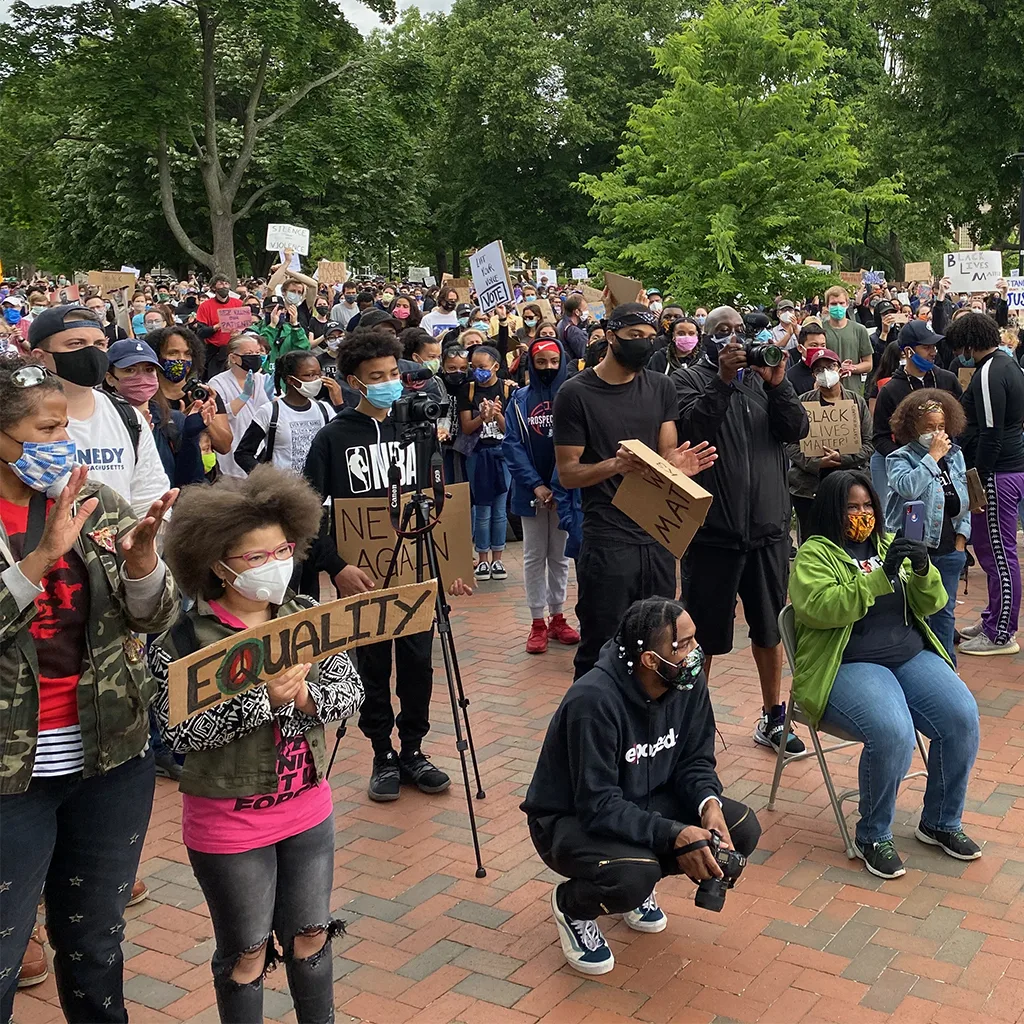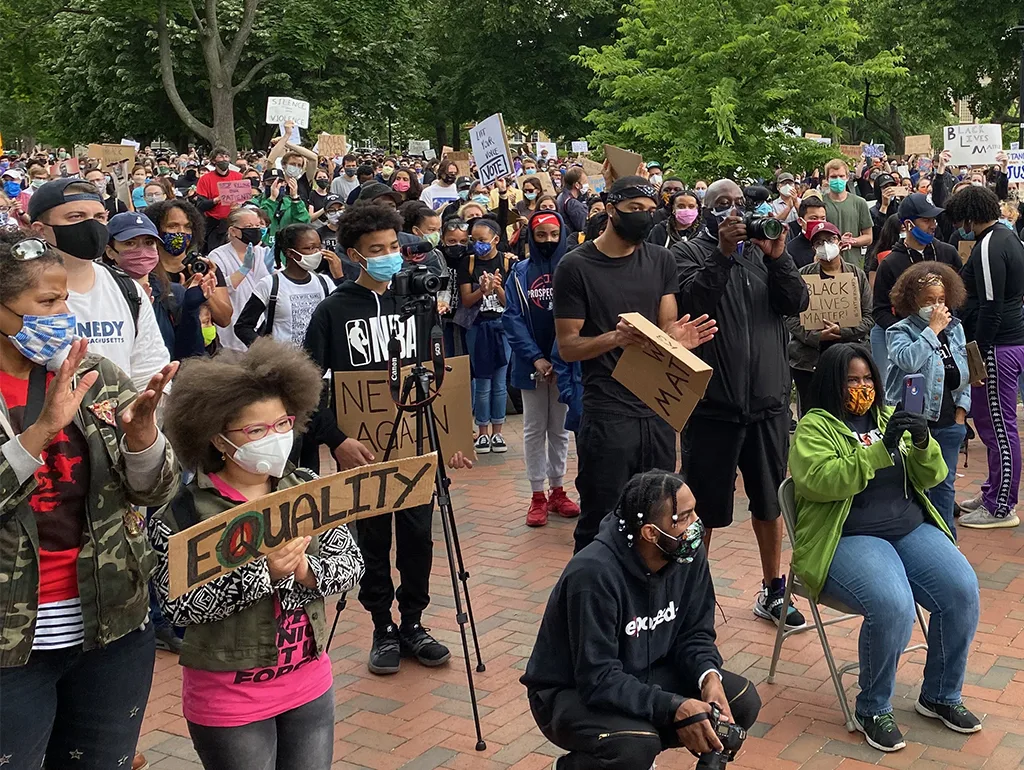
Residents gather on Cambridge Common on June 7, 2020, during a wave of Black Lives Matter protests that energized U.S. social justice efforts such as reparations. (Photo: Marc Levy)
The creation of an American Freedmen Commission to explore reparations was ordained unanimously Monday by the Cambridge City Council.
The new city department of five to 15 people, the majority of whom must be Freedmen – the descendants of people who were enslaved within the United States – now goes to the City Manager’s Office for implementation. Commission members will be paid a stipend to investigate historical human-rights violations and how to address them.
The vote was historic, said speakers during a public comment that drew remarks from several residents and activists from across the country.
“This will be the first approved commission since Reconstruction to focus on the descendants of American chattel slavery,” said Cheryce Cryer, a Los Angeles lawyer active in California’s ongoing work on reparations. “A yes vote will be historical and set a small but mighty city on an international path as a thought leader on restorative justice and create a guideline for other municipalities.”
Some distinctions are drawn between this and other reparations groups: It is not about racial justice, which is based on civil rights, but in transitional justice, which is based on human rights; and the reparations being discussed – which organizers stress is not about finding a dollar amount – is not about black people broadly.
Another California activist, Margery Melvin, said she considered Cambridge’s commission to be the first to “correctly characterize reparations – meaning you’ve correctly characterized it as being for the descendants of those enslaved in this country and freed by the 13th Amendment in 1865.”
Still, the U.S. reparations movement drew strength from the summer of 2020, when Black Rights Matter protests – resulting from a new wave of killings of people of color – also inspired more diversity among candidates for public office and a less successful movement to “defund” or demilitarize police departments.
Councillors thanked resident Saskia VannJames for leading the work on the commission proposal and educating them on its details. “I’m a descendant of slaves, but from the Caribbean. And there is a distinction between those people and American Freedmen – we are related, but we are not the same,” councillor Quinton Zondervan said. “I really appreciate Saskia’s diligence in educating us and helping us understand those distinctions and how to navigate that complexity, and ultimately to put this before us in what is a historic moment and historic vote.”
Standing up in 2021
When two reparations and restitution proposals came up in City Council meetings in 2021, VannJames stood during public comment to call them misguided. The orders were tabled in favor of getting more input from the community – a task that fell to VannJames, a policy director with the cannabis-focused Massachusetts Recreational Consumer Council and the co-founder of Grow to Consume, an organization that helps black people find urban agricultural space and learn to cultivate organic food.
VannJames’ volunteerism became two years of law study, meetings and attending reparations conferences. She estimated in September that she spoke with 1,000 people in preparation for presentations to two council committees leading to Monday’s vote.
“The passing of the American Freedmen commission will help our city repair harm stemming from a racial caste system that’s impacting all of us as residents. And I believe here in Cambridge we’re ready to have conversations on human rights,” VannJames said Monday. “We’re looking at ethnic erasure, and we’re looking at a multigenerational form of a genocide, essentially. When you’re identifying people only by race and justifying it to excuse history, we have to make amends towards our history.”
Just the beginning
The officials and activists agreed that however momentous the vote might be, it was only the start of a long and likely difficult road – starting with its foundational language and principles. “Residents are familiar with conversations around race. They’re familiar with conversations around antiracism,” VannJames said. “This is an unfamiliar conversation.”
Councillor E. Denise Simmons said the commission would do important work, and that Cambridge – as a city that strives to be a model for others nationwide – was “taking a bold step.”
“This city was built on the backs of free, enslaved labor, on Freedmen’s ancestors. Here we have the opportunity to do the important work of correcting the wrongs of the past. I am so proud to stand with this council as we ordain this project,” Simmons said. “This is the easy part. The hard work is yet to come. But I know we’re all up for it.”




